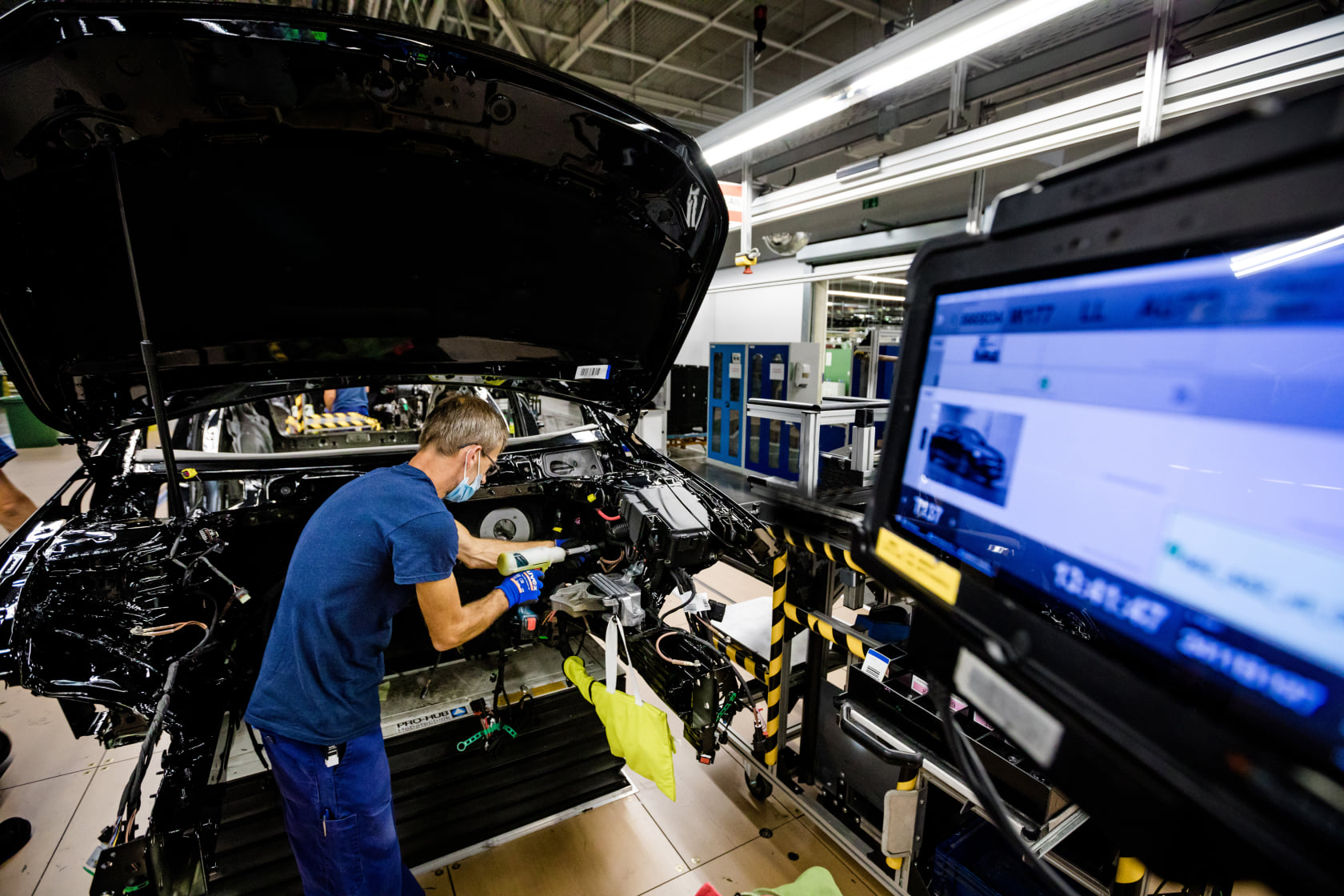[ad_1]

Contrary to expectations, Germany’s business sentiment index, measured by the ifo Institute for Economic Research at the University of Munich, rose in October for the first time in six months, reports Világgazdaság. This is also positive news for Hungary.
Germany’s Business Climate Index rose from 85.8 points in September to 86.9 points in October, instead of the 0.2 percentage point deterioration previously expected, based on the report published on the website of the ifo Institute on Wednesday. The indicator rose for the first time since April.
ifo Geschäftsklimaindex gestiegen – Der ifo #Geschäftsklimaindex ist im Oktober auf 86,9 Punkte gestiegen, nach 85,8 Punkten im September. Die deutsche Wirtschaft sieht einen Silberstreif am Horizont. #ifoUmfrage @KlausWohlrabe @FuestClemens pic.twitter.com/Ar7W1bYo9p
— ifo Institut (@ifo_Institut) October 25, 2023
The perception of the current situation among economic operators also improved, instead of the slight deterioration expected, as the index rose from 88.7 points in September to 89.2 points in October, instead of 88.5 points. The business outlook improved significantly more than expected, from 83.1 points in September to 84.7 points instead of 83.3.
Ifo President Clemens Fuest commented that “the German economy will contract this year, but we expect stabilization or slight growth in the last quarter.”
However, analysts are typically less optimistic than Fuest, expecting a contraction for the whole second half of the year due to the energy crisis, weak Chinese demand, and higher interest rates.
The key manufacturing sector continues to struggle. Chemicals giant Lanxess announced last week that the company was cutting seven percent of its workforce in Germany due to the energy shortage and a slump in global demand. Earlier, the company’s sector partner BASF announced layoffs. Moreover, Volkswagen cut its forecast, citing rising costs and supply disruptions. The positive numbers mainly come from the services sector, such as IT and tourism, Fuest said.
“The uptick in Germany’s business outlook suggests the economy remains sluggish but may be passing the nadir. After a technical winter recession, the economy stagnated in the second quarter of this year. […] Still, things may be stabilizing further out.” Bloomberg Economics wrote. The analysts add that there are some positive signs. For instance, the services sector is stabilizing, helped by an expected rise in incomes.
As Ungarn Heute reported, this is good news for Hungary, as Hungarian-German economic relations have developed rapidly in recent decades.
In addition to traditionally successful sectors, the expansion of economic relations between the two countries is also expanding into new areas such as defense, energy, and research and development.
Energy Minister Csaba Lantos called Germany an important ally and strategic partner of Hungary.
In 2021, Hungary will have a quarter of its total foreign trade with Germany, 11 percent higher than the previous year, Portfolio had reported. Growth continued in 2022, with total trade up 13 percent to EUR 56 billion in the first 10 months of the year compared to the same period in 2021. The stock of foreign direct investment from Germany amounted to EUR 17.5 billion in 2020, around a fifth of total Hungarian foreign direct investment.
Via Világgazdaság, Ungarn Heute; Featured image: Facebook/Mercedes-Benz Gyár Kecskemét
[ad_2]
Source link

